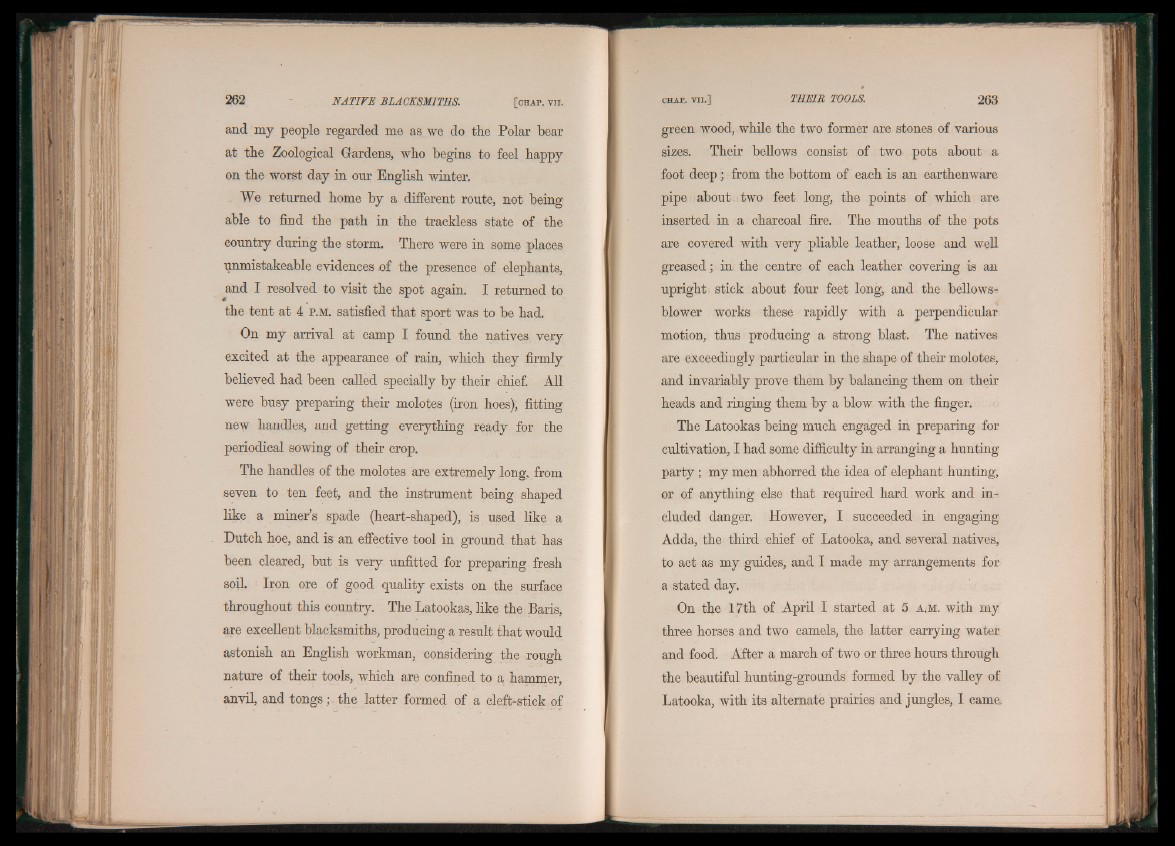
and my people regarded me as we do the Polar bear
at the Zoological Gardens, who begins to feel happy
on the worst day in onr English winter.
We returned home by a different route, not being
able to find the path in the trackless state of the
country during the storm. There were in some places
unmistakeable evidences of the presence of elephants,
and I resolved to visit the spot again. I returned to
the tent at 4 p .m. satisfied that sport was to be had.
On my arrival at camp I found the natives very
excited at the appearance of rain, which they firmly
believed had been called specially by their chief. All
were busy preparing their molotes (iron hoes), fitting
new handles, and getting everything ready for the
periodical sowing of their crop.
The handles of the molotes are extremely long, from
seven to ten feet, and the instrument being shaped
like a miner’s spade (heart-shaped), is used like a
Dutch hoe, and is an effective tool in ground that has
been cleared, but is very unfitted for preparing fresh
soil. Iron ore of good quality exists on the surface
throughout this country. The Latookas, like the Baris,
are excellent blacksmiths, producing a result that would
astonish an English workman, considering the rough
nature of their tools, which are confined to a hammer,
anvil, and tongs; the latter formed of a cleft-stick of
green wood, while the two former are stones of various
sizes. Their bellows consist of two pots about a
foot deep; from the bottom of each is an earthenware
pipe about two feet long, the points of which are
inserted in a charcoal fire. The mouths of the pots
are covered with very pliable leather, loose and well
greased; in the centre of each leather covering is an
upright stick about four feet long, and the bellows-
blower works these rapidly with a perpendicular
motion, thus producing a strong blast. The natives
are exceedingly particular in the shape of their molotes,
and invariably prove them by balancing them on their
heads and ringing them by a blow with the finger.
The Latookas being much engaged in preparing for
cultivation, I had some difficulty in arranging a hunting
p arty ; my men abhorred the idea of elephant hunting,
or of anything else that required hard work and included
danger. However, I succeeded in engaging
Adda, the third chief of Latooka, and several natives,
to act as my guides, and I made my arrangements for
a stated day.
On the 17th of April I started at 5 a .m. with my
three horses and two camels, the latter carrying water
and food. After a march of two or three hours through
the beautiful hunting-grounds formed by the valley of
Latooka, with its alternate prairies and jungles, I came.